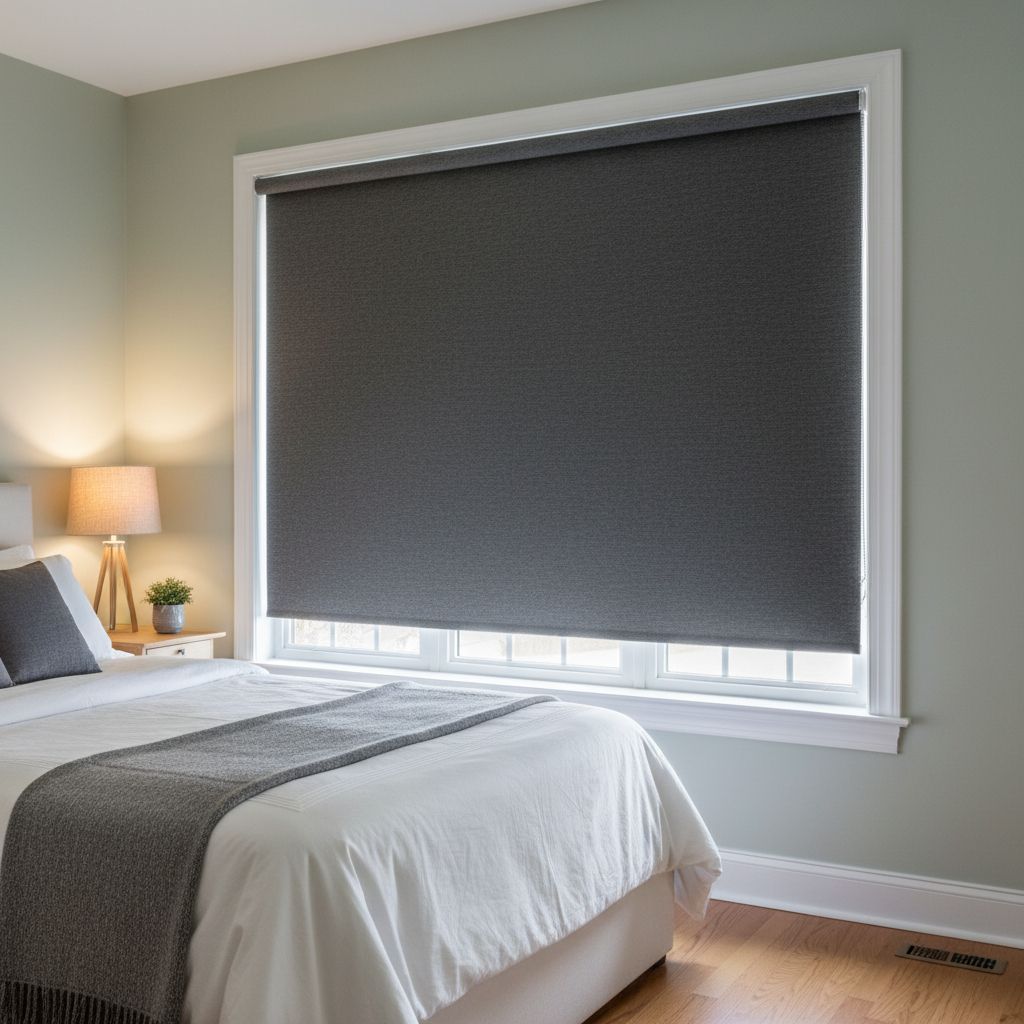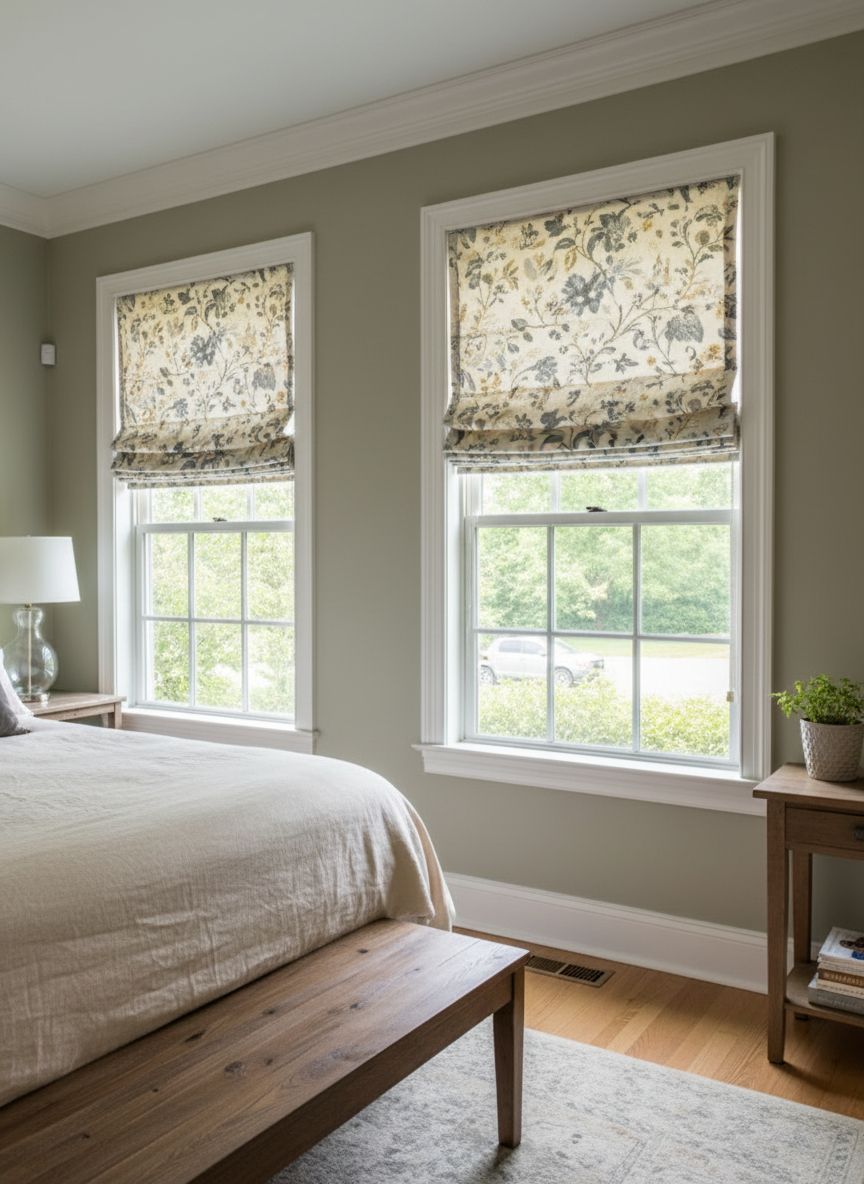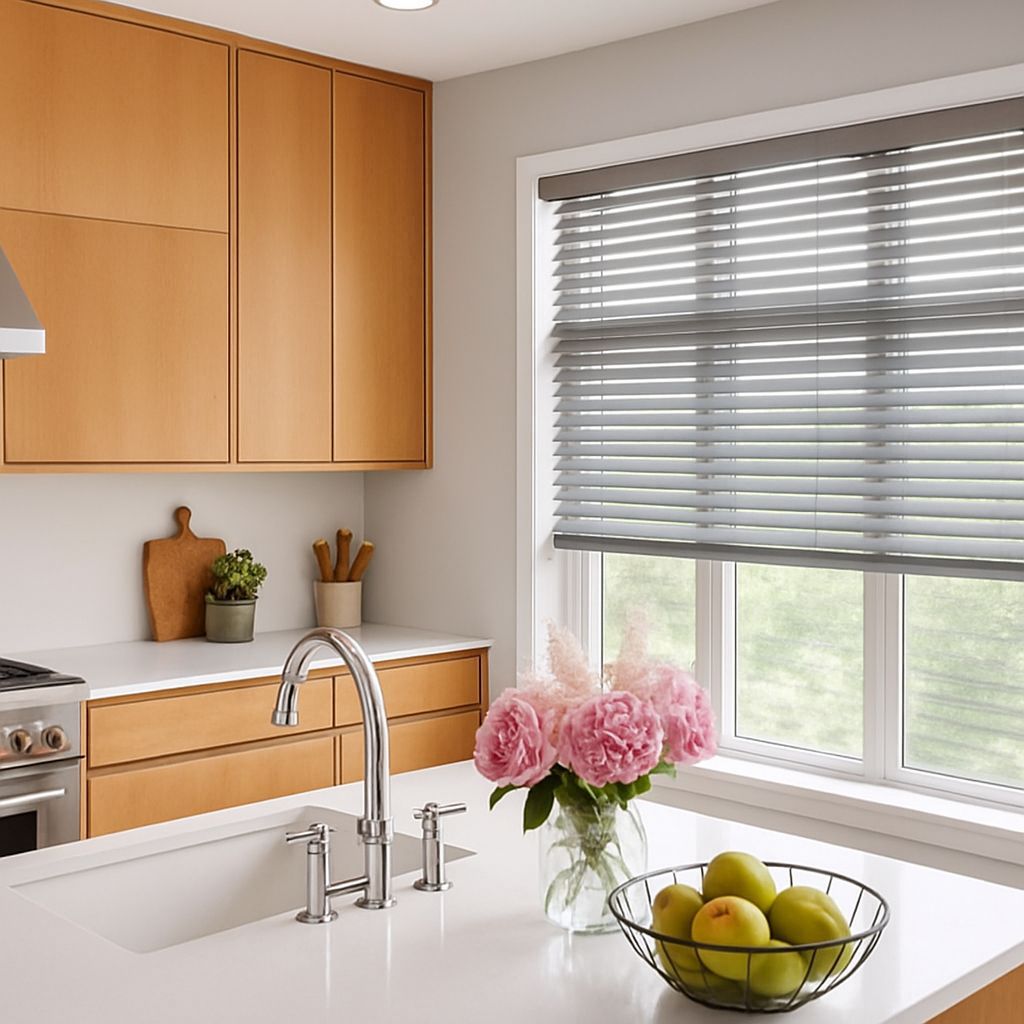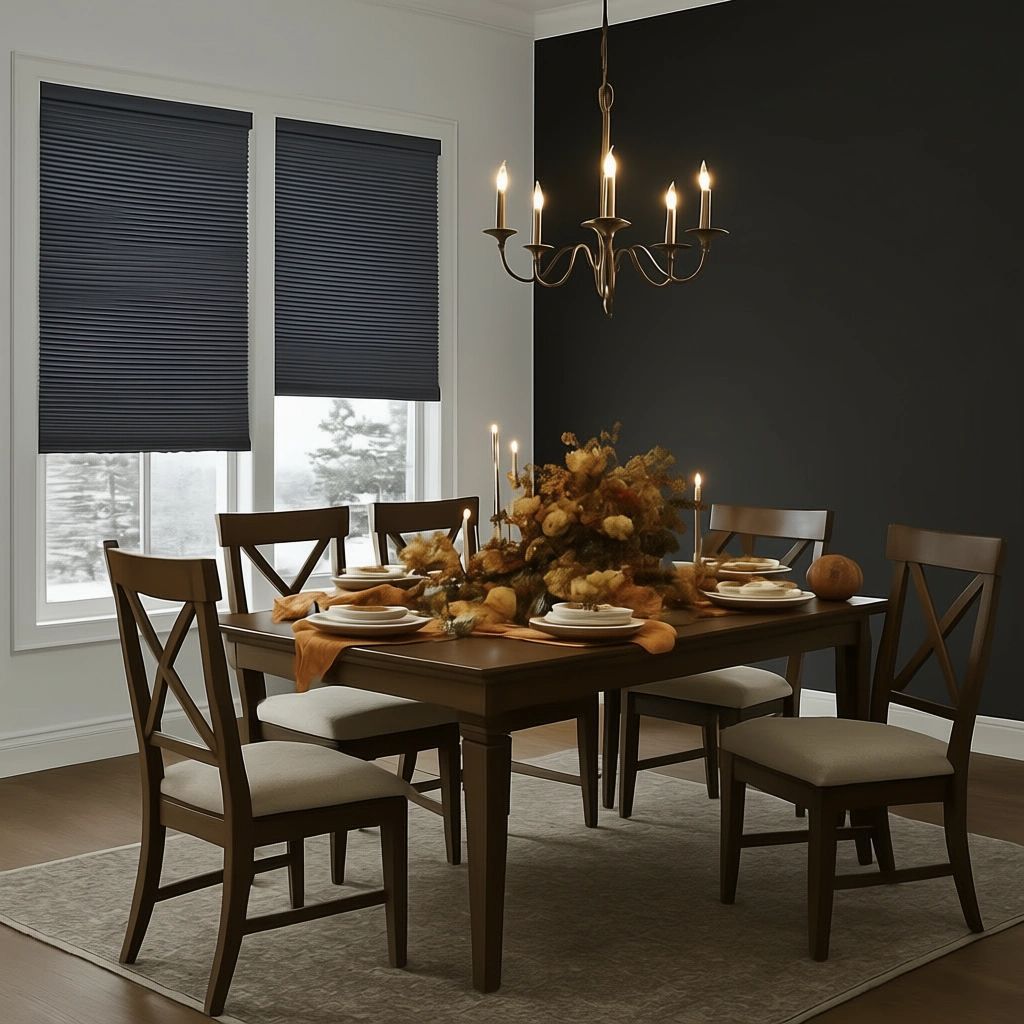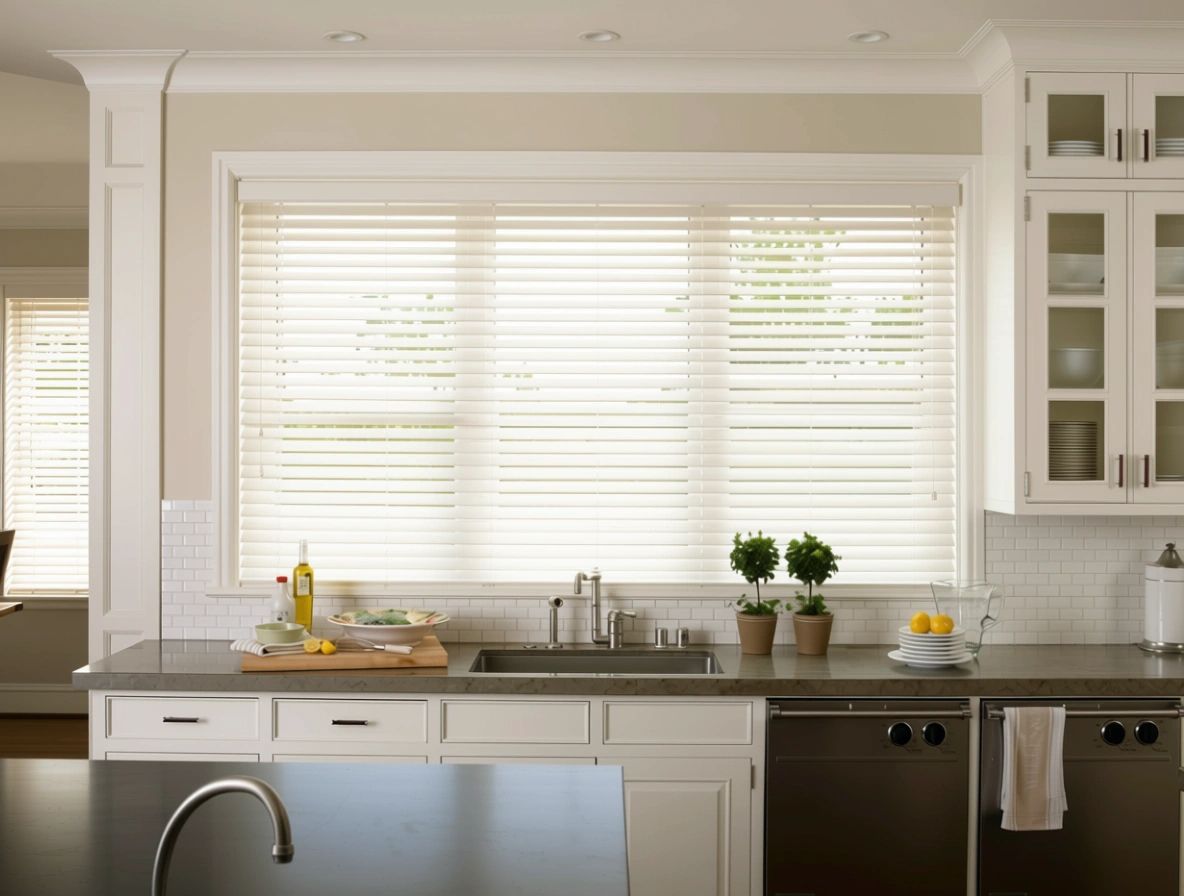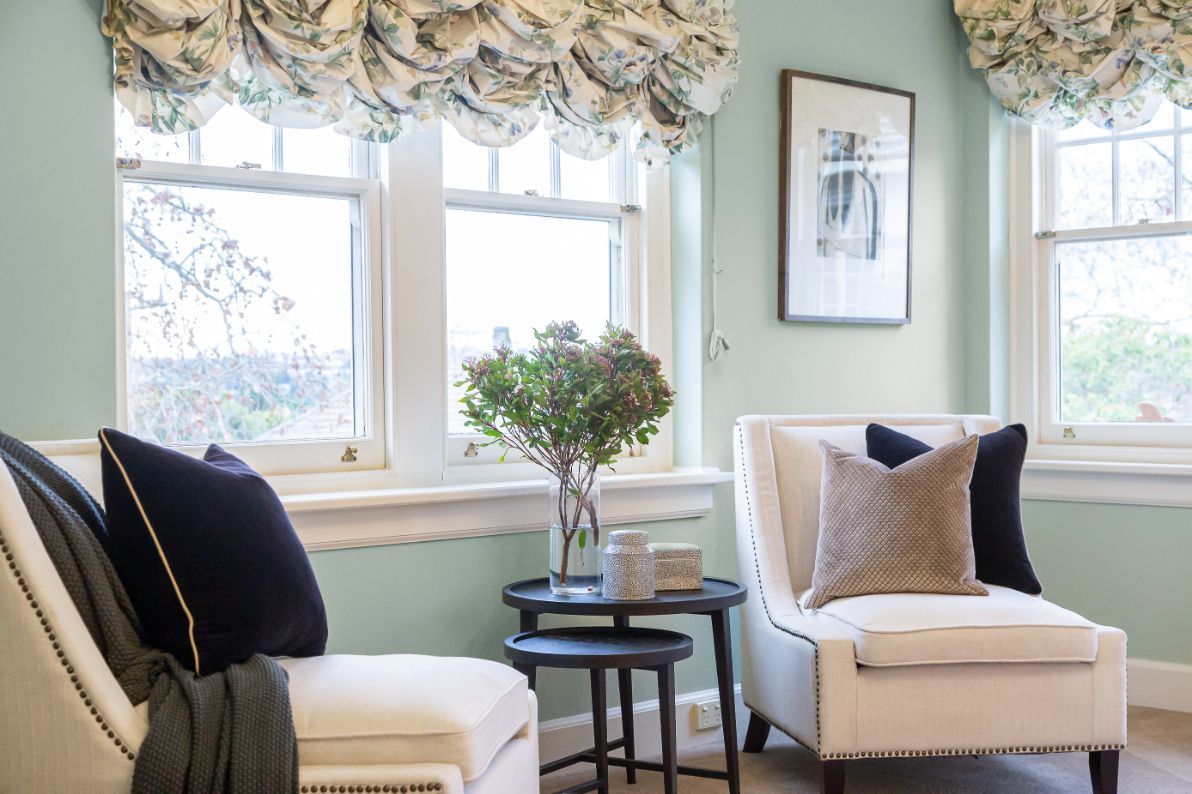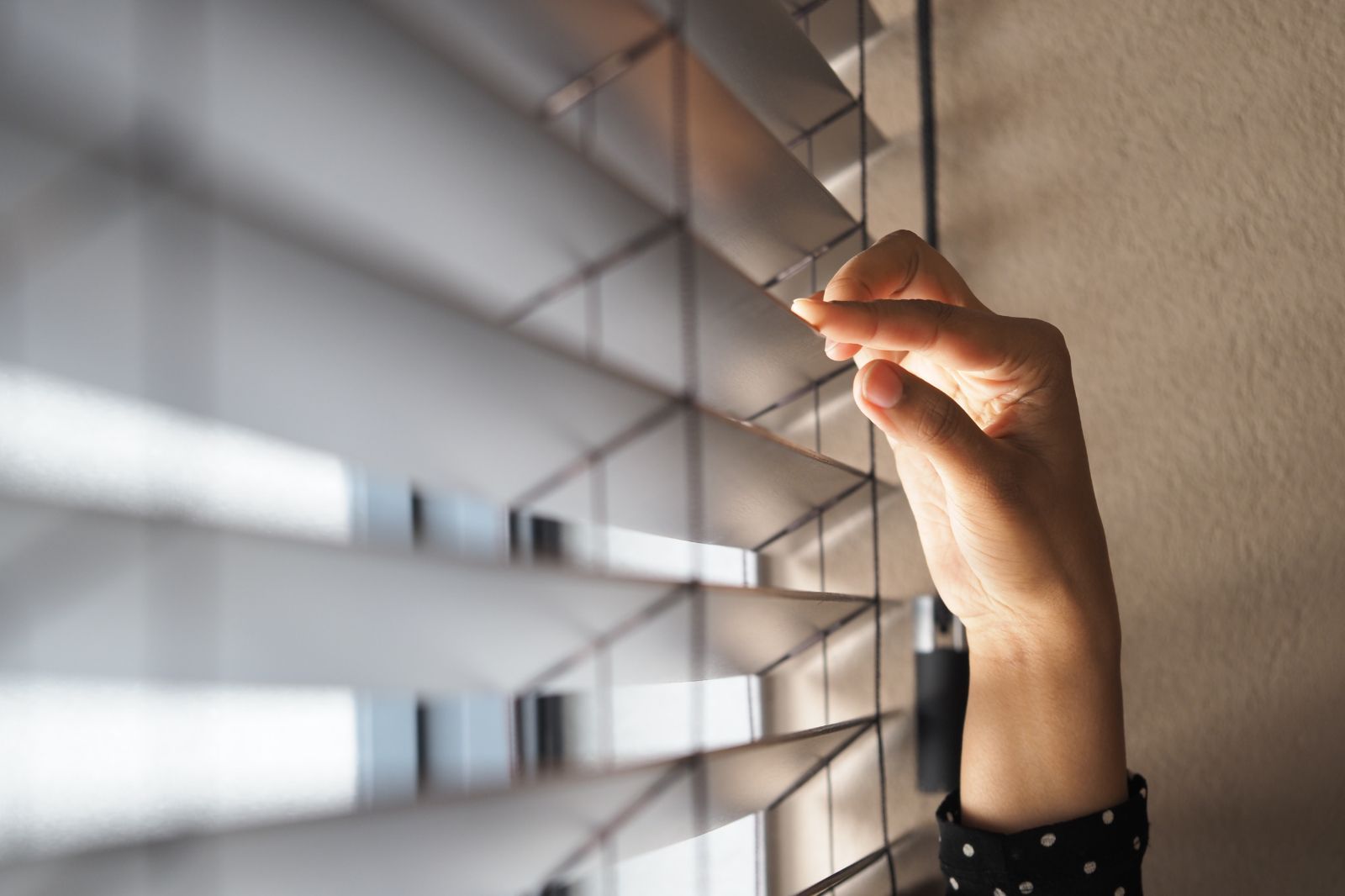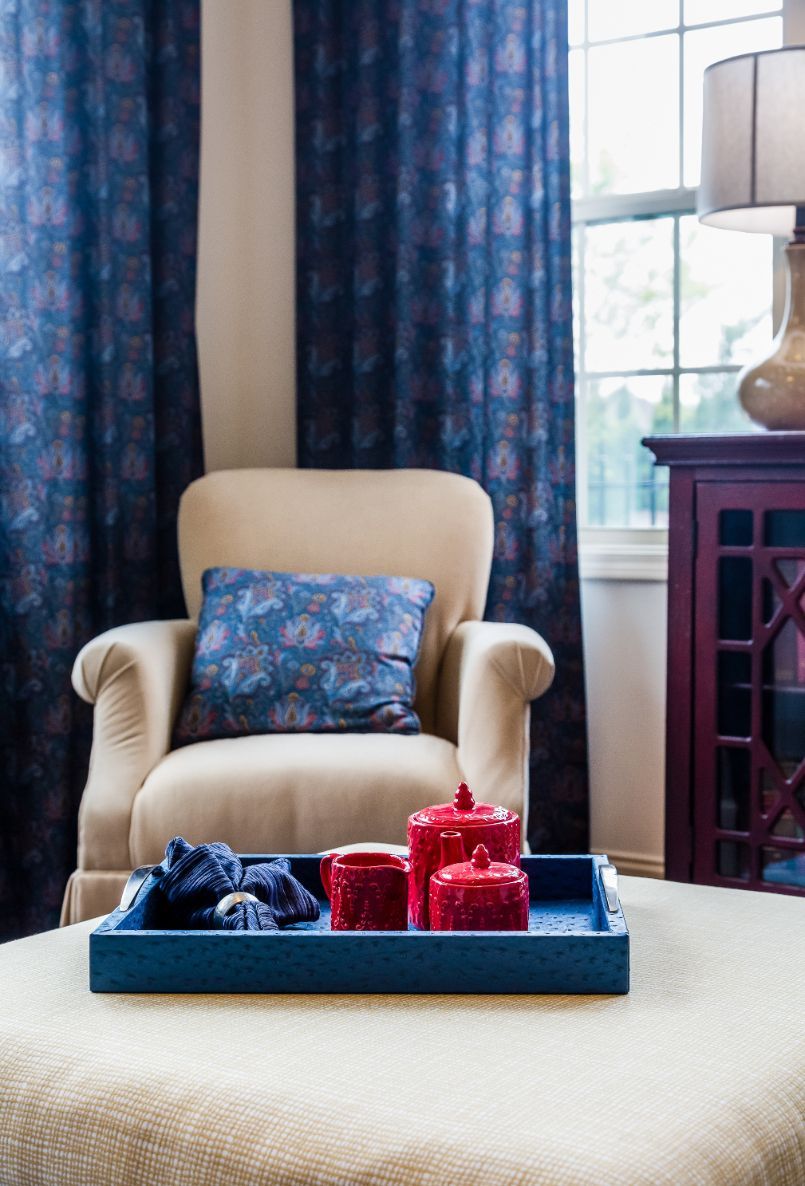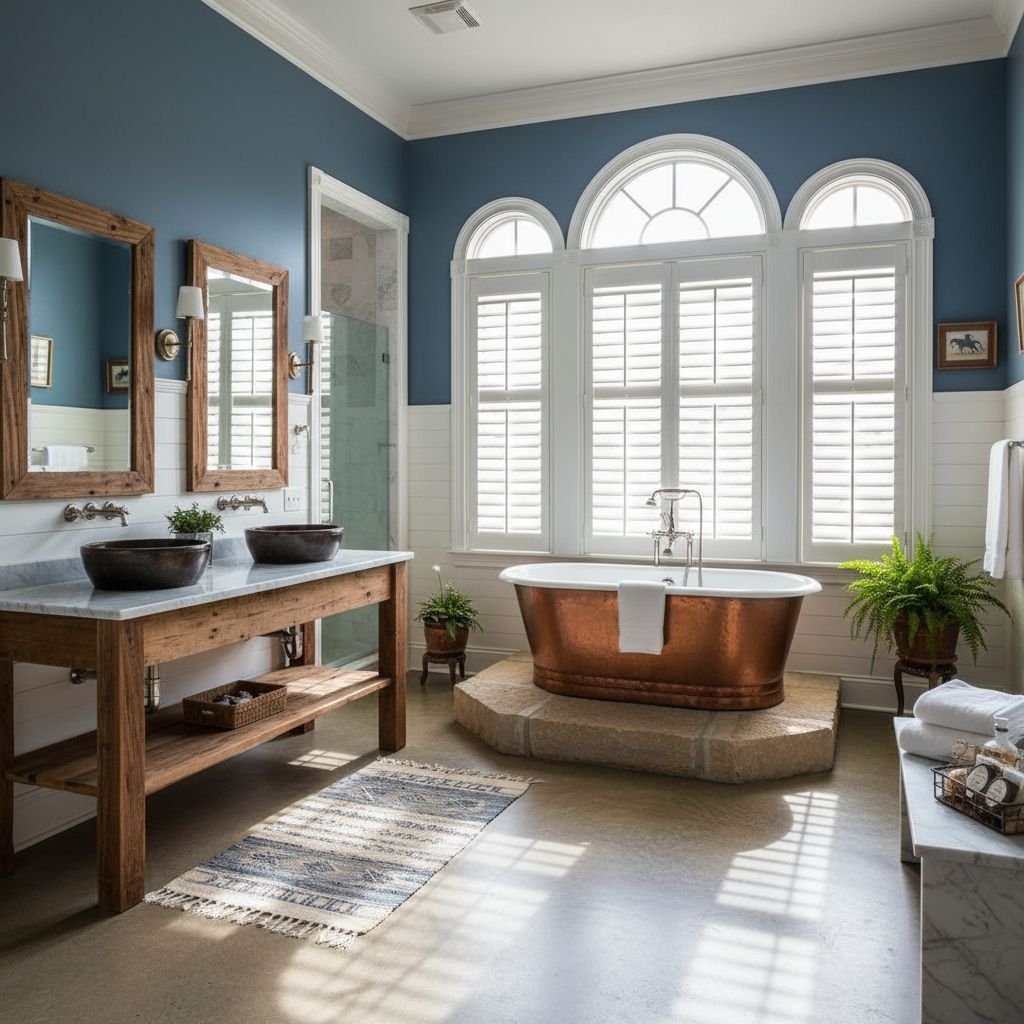What Are the Best Window Treatments for Soundproofing a Room?
TLDR;
The best
window treatments for soundproofing a room are soundproof curtains, cellular shades, layered treatments, acoustic window inserts, and shutters paired with drapery. Each reduces outside noise through mass, absorption, and sealing, and the right choice depends on your noise source, window type, and budget. Combining treatments usually gives the strongest results.
Why Soundproofing Windows Matters
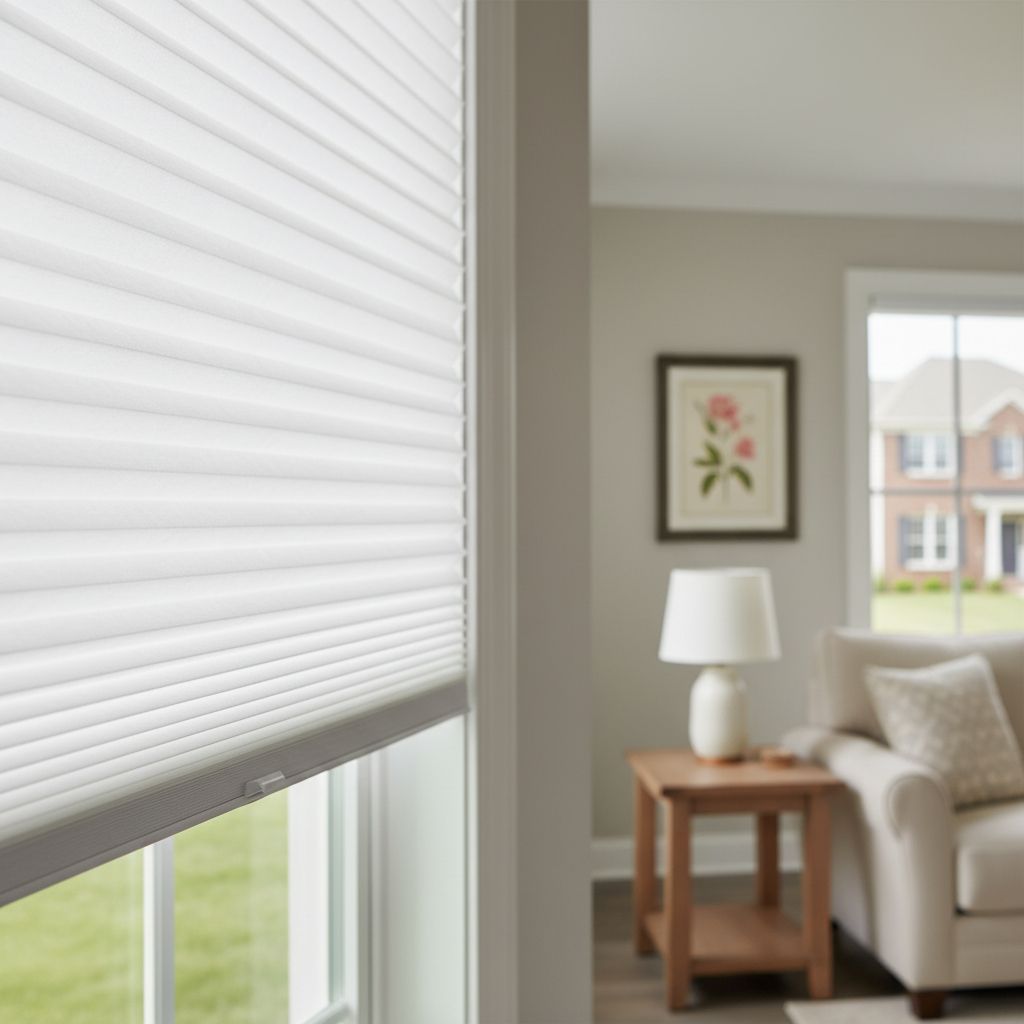
Windows are often the weakest point in a room’s defense against noise. Thin glass, gaps in frames, and poor seals let outside sounds in.
Noise pollution affects health and comfort. It disturbs sleep, reduces focus at work, and creates stress. Studies have shown that long-term exposure to environmental noise increases risks for cardiovascular problems and anxiety.
By soundproofing windows with the right treatments, you improve:
- Sleep quality
- Concentration while working
- Peace in shared living spaces
- Energy efficiency when treatments also insulate
For individuals and businesses, solving noise issues creates more productive and comfortable environments.
How Window Treatments Aid Noise Reduction
Window treatments reduce sound through several mechanisms:
- Absorption: Soft materials absorb sound waves instead of letting them bounce.
- Reflection: Dense barriers reflect sound energy away.
- Mass: Heavy fabrics or inserts block vibration transfer.
- Damping: Multi-layered materials reduce vibration energy.
- Sealing: Covering gaps with treatments or caulk prevents noise leaks.
Noise reduction depends on matching the treatment to the type of noise. High-frequency sounds are easier to absorb with fabrics. Low-frequency sounds like traffic or bass music require more mass and sealing.
Top Window Treatment Types for Soundproofing
Soundproof Curtains and Acoustic Drapes
Thick curtains made from dense fabrics are one of the most common solutions.
- Multi-layer lining and vinyl backing improve sound absorption.
- Floor-to-ceiling coverage prevents gaps where sound enters.
- Options include blackout acoustic curtains that also block light.
Limitations: They reduce high- and mid-frequency noise but are less effective for low bass sounds.
Cellular Shades and Honeycomb Shades
Cellular shades trap air inside their honeycomb design. The trapped air pockets slow sound transmission.
- Double-cell shades are more effective than single-cell.
- Some acoustic cellular shades include noise-absorbing fabrics.
- They also improve energy efficiency by insulating against drafts.
These shades are an excellent choice for homeowners who want both aesthetics and performance.
Layered Treatments
Layering adds effectiveness by stacking absorption with barrier layers.
- Curtains paired with cellular shades
- Curtains paired with
blinds or shutters
- Hybrid acoustic window systems with multiple coverings
This combination closes more gaps, reduces reverberation, and creates higher resistance to outside sound.
Acoustic Window Inserts
An insert is a clear acrylic or laminated panel placed over the window inside the frame.
- Adds another sealed layer to the glass
- Increases the Sound Transmission Class (STC) rating
- Removable options are available for renters
Inserts often reduce noise by 10 to 20 decibels when sealed correctly.
Window Shutters with Drapery
Solid shutters made of dense wood or composite materials block external noise.
Pairing shutters with soft drapes adds absorption inside the room.
- Acoustic shutters provide durability
- Drapery prevents echoes and complements
shutters aesthetically
This layered approach offers both noise reduction and design flexibility.
DIY and Supplemental Options
Not all solutions require custom products. Homeowners sometimes use:
- Acoustic blankets for temporary coverage
- Mass Loaded Vinyl (MLV) window covers
- Window plugs that fit snugly to block noise when needed
These are practical for short-term or rental situations.
Factors to Evaluate Before You Buy
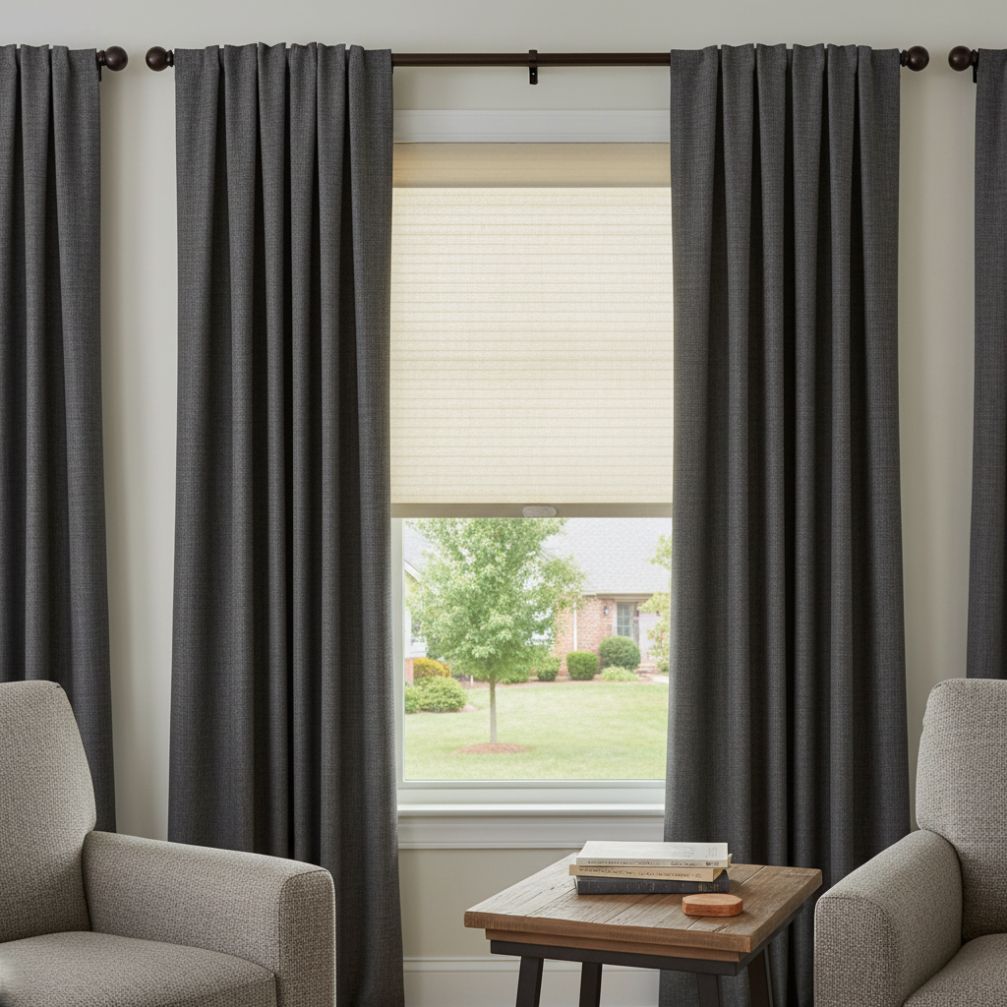
Noise Level and Source
- Traffic noise requires heavier materials and strong seals
- High-frequency sounds are easier to absorb with fabrics
- Low-frequency sounds like trains need inserts or shutters
Window Type and Frame
- Single-pane windows are more vulnerable to noise
- Double-pane or laminated glass improves performance
- Leaky frames reduce the effect of any window treatment
Aesthetic and Design Compatibility
Consider how treatments integrate with your interior. Some homeowners prefer discreet inserts. Others want bold curtains that match décor. If you’re unsure what works best, start by choosing window treatments for your window style to balance function with design.
Budget vs Performance
Different options provide different results. Curtains are affordable. Inserts and laminated windows are more of an investment but provide better long-term performance.
Ease of Installation and Reversibility
Renters often prefer removable inserts or curtains. Homeowners might choose permanent upgrades like shutters or laminated windows.
Advanced Soundproofing Tips
Many competitor guides stop at listing treatments. As experts at Love Is Blinds KY, we recommend going further with measurable results and practical testing.
- STC Ratings: This measures how well a material blocks sound. A higher STC means better noise reduction.
- Case Examples: Some households report a 50 percent drop in noticeable noise after adding inserts and acoustic curtains together.
- Climate Effects: Fabrics may lose density in humid conditions. Choose materials rated for your region.
- Maintenance: Heavy curtains require periodic cleaning. Inserts need resealing over time.
- ROI: Treatments not only reduce noise but also improve insulation, saving on energy bills.
- Historic Homes or Rentals: Inserts and removable plugs are non-invasive solutions.
Step-by-Step Installation and Best Practices
To get the most from soundproof window treatments:
- Measure your windows carefully. Treatments should overlap frames.
- Mount curtains as close to the ceiling and floor as possible.
- Use side tracks or magnetic seals for inserts.
- Seal all gaps with acoustic caulk or weatherstripping.
- Layer treatments in the right order: insert closest to the window, then
shades, then curtains.
- Test by sitting in the room and listening for leaks, then adjust.
Comparison Table of Options
| Window Treatment | Noise Reduction Potential | Cost Range | Ease of Installation | Reversible | Design Flexibility |
|---|---|---|---|---|---|
| Acoustic Curtains | Moderate, 5–10 dB | Low | Easy | Yes | High |
| Cellular Shades | Moderate, 5–8 dB | Medium | Moderate | Yes | High |
| Layered Treatments | Higher, 10–15 dB | Medium | Moderate | Yes | High |
| Window Inserts | High, 10–20 dB | Higher | Moderate | Yes | Medium |
| Shutters + Drapery | High, 10–15 dB | Medium-High | Permanent | Yes | Medium |
| DIY Covers (MLV, Plugs) | Variable, 5–15 dB | Low | Easy | Yes | Low |
FAQs
Do blackout curtains reduce noise?
Blackout curtains reduce light and absorb some noise, but they are not as effective as dedicated acoustic curtains.
Are blinds or curtains better for soundproofing windows?
Curtains perform better than blinds. Blinds lack the mass and fabric density needed to absorb sound effectively.
What is the cheapest way to block window noise?
The most affordable options are heavy curtains, acoustic blankets, or weatherstripping gaps.
Can window treatments reduce road noise significantly?
Yes, especially when inserts or layered treatments are used. The reduction depends on window type and sealing.
How do I choose the right acoustic liner?
Select liners with high density and multi-layer construction. Vinyl-backed liners provide better results than thin fabrics.
Soundproof Window Treatments for Better Living
The best window treatments for soundproofing depend on your situation. For quick improvement, choose heavy acoustic curtains and seal gaps. For stronger results, add inserts or pair shutters with drapery. Layering is often the most effective approach.
At Love Is Blinds KY, we recommend evaluating your noise source, window type, and design preferences. With the right combination, you reduce noise, improve comfort, and create a space that supports rest and focus.

